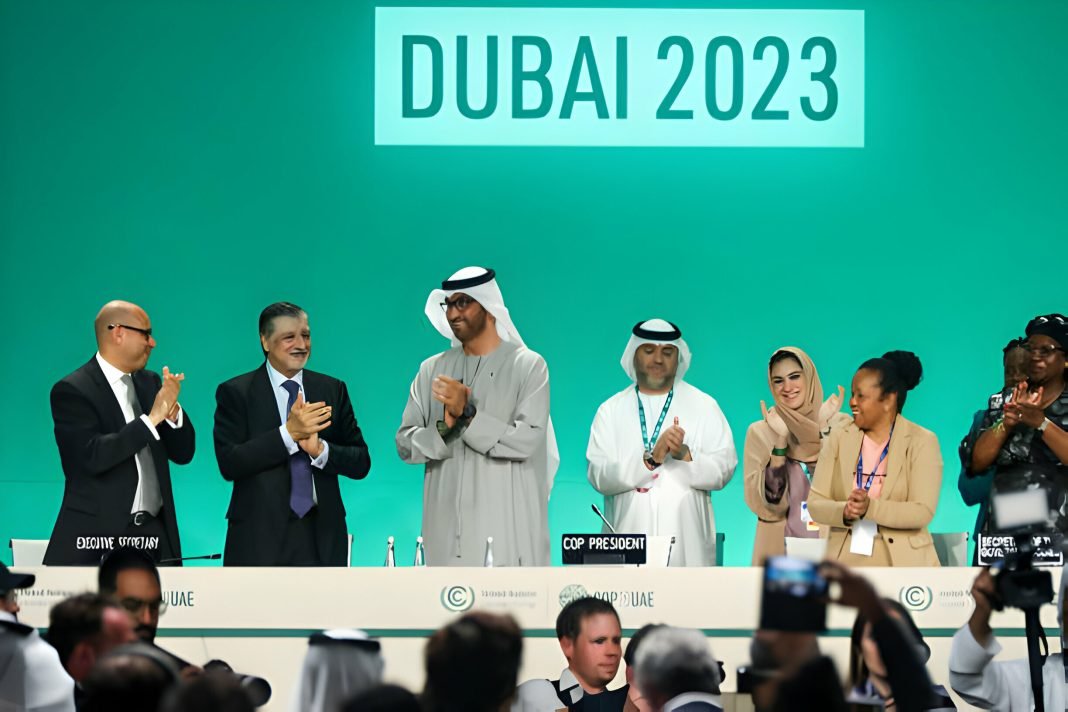The choice of Dubai for COP28 sparked several controversies about fossil fuels in the UAE, raising concerns about its suitability for hosting the conference. The controversies about fossil fuels involve business matters more than climate issues. In other words, COP28 veered from its primary objective. As reported by Time, the conference significantly pivoted towards the private sector, a departure from previous U.N. climate gatherings. This means that private sectors from some countries are considering their business bonanzas.
The conference in Dubai is absurd
Before COP28, there were controversies about fossil fuels in the UAE and the suitability of this country for the event. According to ECFR, in France, climate campaigners recently wrote a letter saying that “holding a climate conference in Dubai is absurd and dangerous”. As ECFR says, this will be the tone of the media coverage of COP28 in Europe. Moreover, this negative narrative will likely affect the atmosphere of the negotiations. Failure at COP28 would worsen international community divisions and prevent concrete progress towards climate goals.
Reaching a compromise
According to France24, another point of difference was Jaber’s endorsement of controversial carbon capture technologies. Such technologies trap emissions and store them permanently. In July, ADNOC committed to achieving carbon neutrality by 2045. However, that target does not include emissions produced by the oil and gas its customers burn.
COP28 commenced robustly with Jaber’s successful establishment of a significant fund for loss and damage on its inaugural day. Subsequently, discussions extended beyond schedule following a disagreement regarding the terminology surrounding the reduction of fossil fuels, debating between “phasing out” or “phasing down.” Eventually, a compromise was swiftly reached, and the agreement was hurriedly ratified on Wednesday.
Conflict of interest in naming Jaber as COP28 chief
As EFI reports, Jaber is the CEO of oil giant ADNOC. He is also the UAE’s climate envoy and minister of industry and advanced technology. Moreover, he is the chairman of the renewable energy company Masdar. Dozens of European and US lawmakers said Jaber’s oil and gas links should disqualify him from the Cop28 job. Hundreds of climate campaign groups demand that he quit either COP or ADNOC. According to France24, his naming as COP28 chief drew conflict-of-interest concerns. COP28 was a time of stark warnings about the urgency of transitioning away from hydrocarbons. “COP28 is beset by a dark cloud of — entirely warranted — public scepticism,” US Senator Sheldon Whitehouse says.
COP28 in Dubai ends with historic deal
Before the COP, there were controversies about fossil fuels in the UAE and the choice of this country as the venue of the event. However, COP28 ended with a historic deal. As Times reports, UAE’s Jaber brought the gavel down to approve the deal. The approval was met with applause and cheers by delegates.
In the same line, France24 says UAE’s Sultan Al Jaber, oil boss, brokered the ‘beginning of the end’ for fossil fuels. Jaber headed COP28 in Dubai. He promised that this year’s UN climate talks would be “different”. He did not disappoint. Jaber brought down the gavel on the first UN agreement and called for a transition from fossil fuels. The United Arab Emirates is one of the world’s biggest crude oil producers. In the same line, Time reports that the COP28 climate talks ended in a historic deal. The deal committed the world to a transition away from all fossil fuels for the first time. The agreement was strong enough for the U.S. and the UN on the need to dramatically curb fossil fuel use. Moreover, it kept Saudi Arabia and other oil producers in agreement.
Signal to investors
Time states that the COP28 language is pushing a decline in fossil fuel use. Jennifer Morgan said this language will signal investors about the future of energy markets. She commented as she was leaving the final plenary meeting at Dubai Expo City. Ms Morgan was Germany’s climate envoy.
“We now move forward in implementing this tomorrow,” Jennifer Morgan said. “Every investor should understand now that the future profitable and long-term investments are renewable energy,” She added. “Investing in fossil fuels is a stranded asset,” She stated.
Investors were also watching for progress on a new carbon offsets market supervised by the UN. However, talks on that front collapsed after the EU and some Latin American countries pushed for stricter standards.
COP28: A business bonanza
COP28 veered from its primary objective, resembling more of a business bonanza. As reported by Time, the conference significantly pivoted towards the private sector, a departure from previous U.N. climate gatherings. This shift highlights how corporations integrate into the annual conference, altering the landscape for COP attendees. Esteemed observers of COP view this shift as a timely and strategic move. They contend that climate discussions should transcend conventional negotiations, actively influencing real economic sectors to achieve emission targets. Some attending companies have notably solidified their green credentials by reducing carbon footprints and advocating for government policies that foster similar eco-friendly practices among fellow businesses. However, for detractors, the increased business presence, including major emission contributors, undermines the essence of the conference. Some companies arrive with scant contributions and no intent to champion supportive government policies. This dilemma detracts from the primary goal of forging an agreement to phase out fossil fuels.

